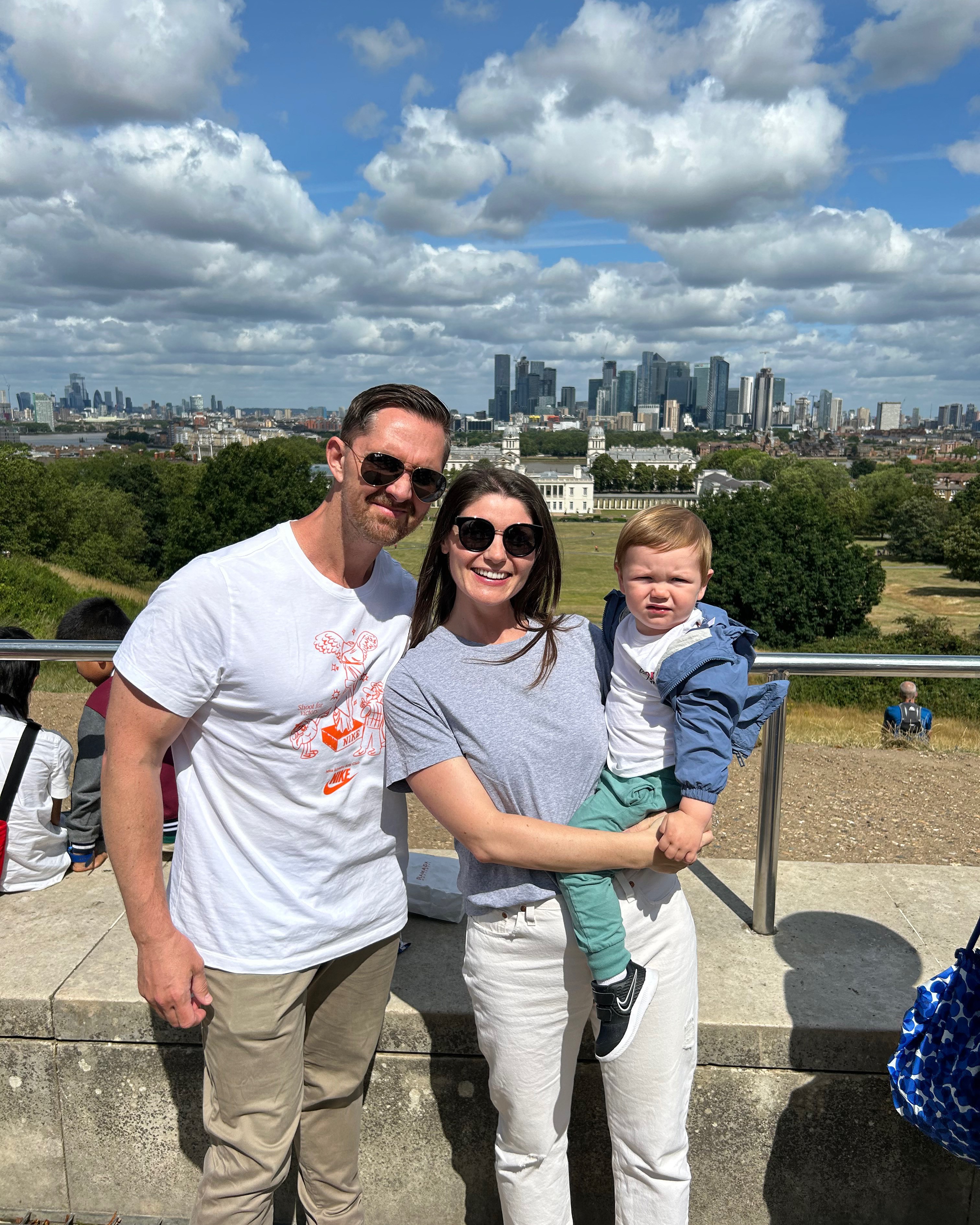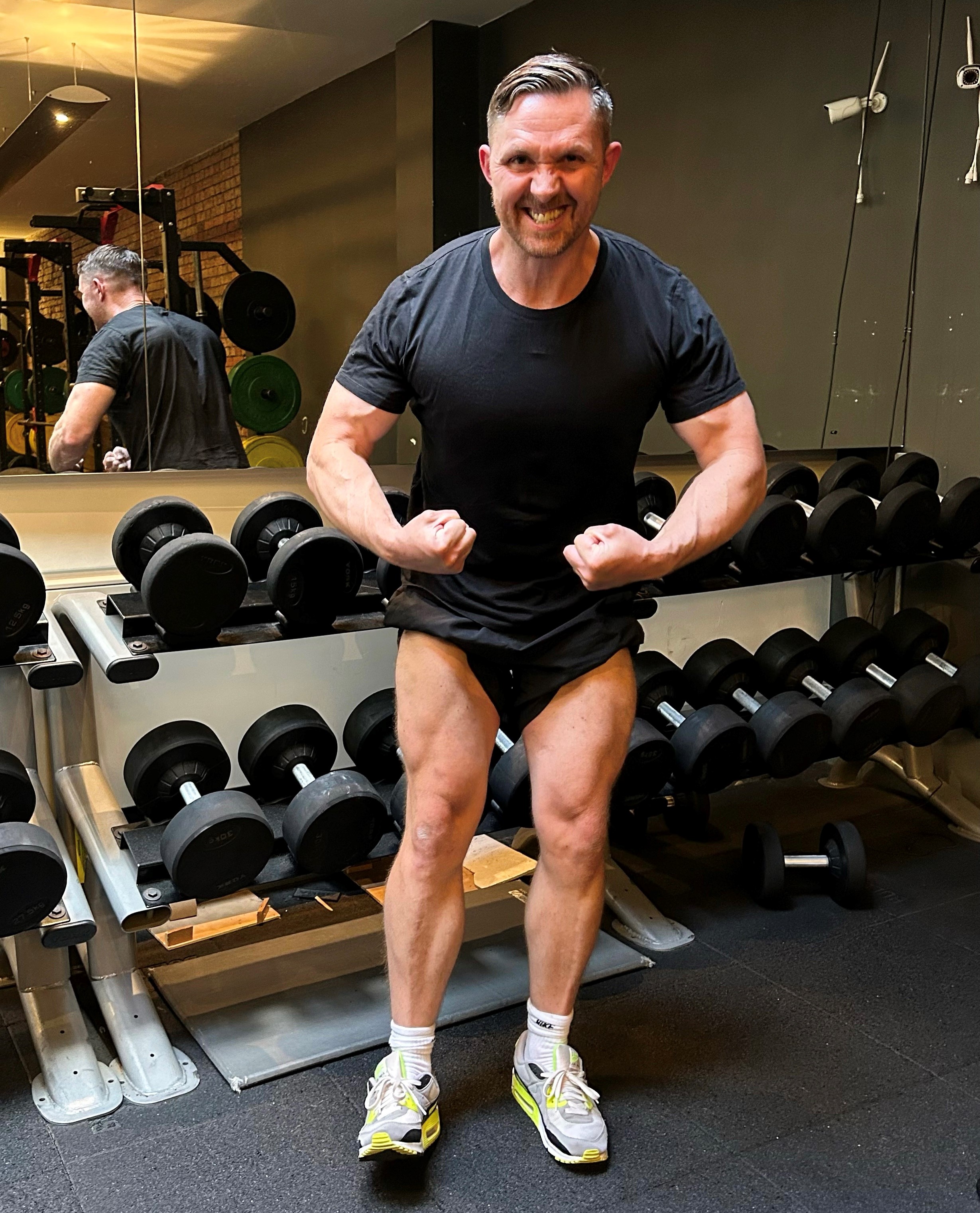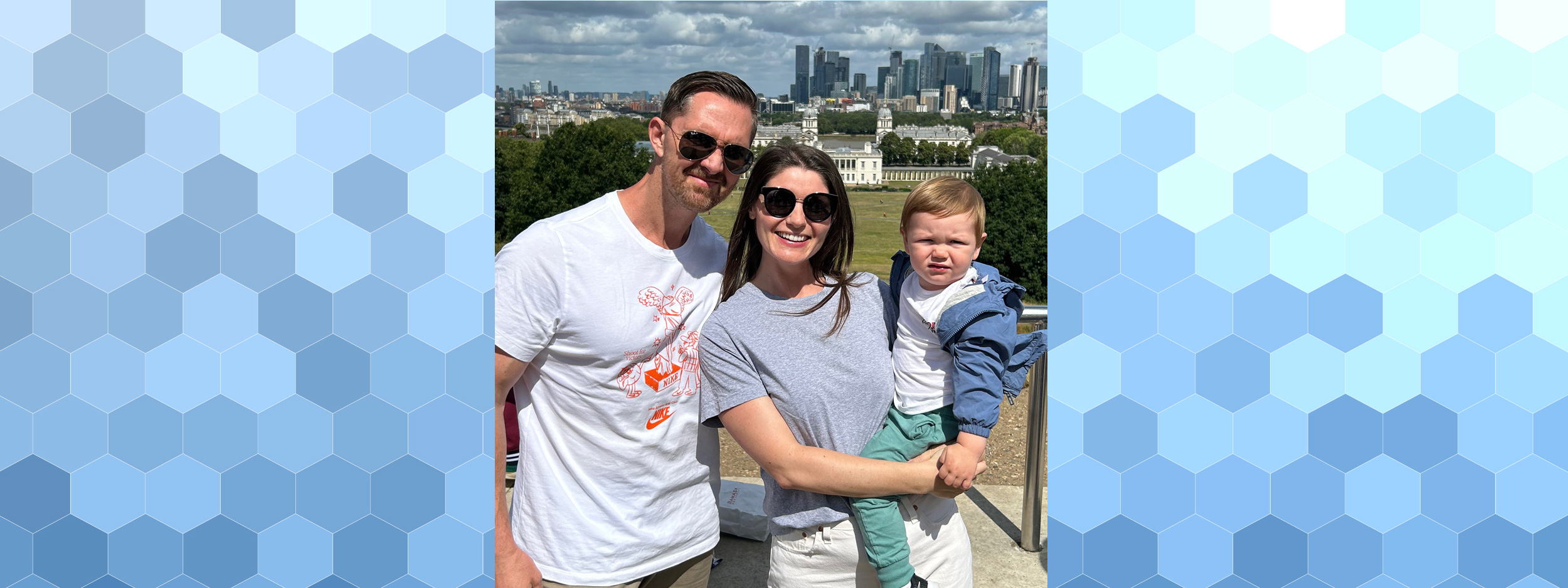 As a personal trainer and bodybuilder, Barry Stalker was used to his muscles behaving in a certain way. For 25 years, he was lifting weights, training to get the look – a sculpted physique, with bulging arms, chest, and legs.
As a personal trainer and bodybuilder, Barry Stalker was used to his muscles behaving in a certain way. For 25 years, he was lifting weights, training to get the look – a sculpted physique, with bulging arms, chest, and legs.
Then, on January 5, 2015, everything changed. He woke up and couldn’t see properly.
“My right eye was wall-eyed, and my eyelid drooped as well,” he says.
He saw an eye specialist who couldn't say what the problem was. A few days later, his jaw went numb, and he felt like he couldn’t breathe. At the hospital, a doctor put the symptoms together and suspected myasthenia gravis.
After a referral to neurology and a few tests, the diagnosis was confirmed. Barry had a thymoma, a tumor of the thymus gland that can cause MG.
In the weeks that followed, his symptoms got worse. He struggled to speak, swallow, walk, and see. He was so weak he struggled to take the Mestinon his doctor gave him to help control the symptoms.
“I went from being able to squat 400 pounds to my wife having to help me off the sofa,” Barry shares.
In the spring of that year, he had a thymectomy. This procedure to remove the thymus can dramatically reduce symptoms for some patients, but it can take time to see improvement – up to one to two years.
After the surgery, Barry’s doctors tried to slowly wean him off medications, including Prednisone, to assess how the procedure impacted his disease. Patients particularly dislike this corticosteroid medication, with side effects like weight gain, mood changes, and facial swelling.
“I was taking so much my face hurt to smile,” Barry says. “I relapsed twice while trying to get off the steroids.”
All of this took a tremendous toll on his mental health, Barry says. He had trouble sleeping and dealing with the complete 180 degree turn his life had taken.
It took a few years for his MG to stabilize. During that time, he began to build a mindset to get through the difficulties of his disease. For Barry, it started with acceptance.
“When I draw my last breath, I’ll have MG,” he says. “Understanding that, it’s like grieving – it helps you move on. I can never do what I did in my former life.”
 These days, he lives in the present, enjoying the daily pleasures of life with his wife, Caroline, and their young son. He wryly says that life with a baby wasn’t too much of a change for him since he’s permanently tired already.
These days, he lives in the present, enjoying the daily pleasures of life with his wife, Caroline, and their young son. He wryly says that life with a baby wasn’t too much of a change for him since he’s permanently tired already.
“When you Google ‘myasthenia gravis’ and find out that you can die from this – you have to keep that in the back of your head. It makes you appreciate every day more.”
He’s also gone back to the world of physical fitness.
While his neurologist was tentative about Barry being too physically active, Barry feels that the overall health benefits of exercise, including improvements to mental health, are worth it. He started easy and integrated exercise back into his life slowly.
“Looking after myself physically with the body building perspective put me in good stead to come out the other side and start doing some exercise again,” he says.
While he can’t lift a fraction of the weight he used to in his bodybuilding heyday, he consistently maintains a workout routine that involves weight training. He’s learned to monitor how he feels on a day-to-day basis.
“Some days, I get there and I’m like, right, can’t do that. I can go up to that line, but not further, or there will be a repercussion.”
He’s resumed his work as a physical trainer in London, helping clients across the spectrum of physical health attain their own fitness goals. He charts his training sessions and offers advice on his Instagram, @barryprotraineruk. 
He says that talking about MG on social media has opened up conversations with other patients looking for connection, information, and solidarity. He says the mental part of myasthenia gravis is hard for many of them, too. Being part of the MG Community online helps.
His advice?
“Be optimistic, but realistic. MG is always there with you. My mindset – fight this the best you can do.”

